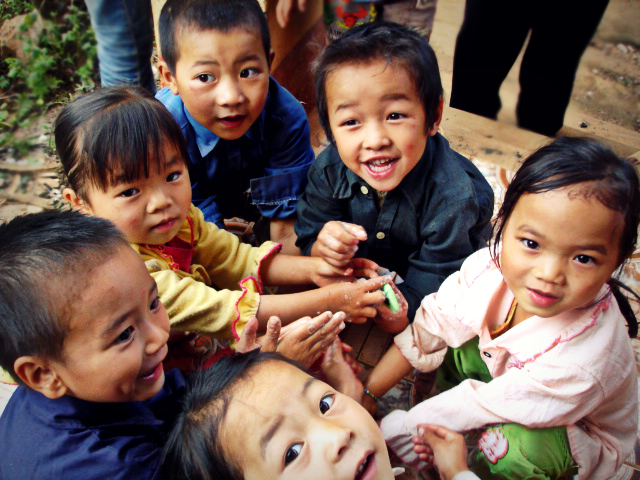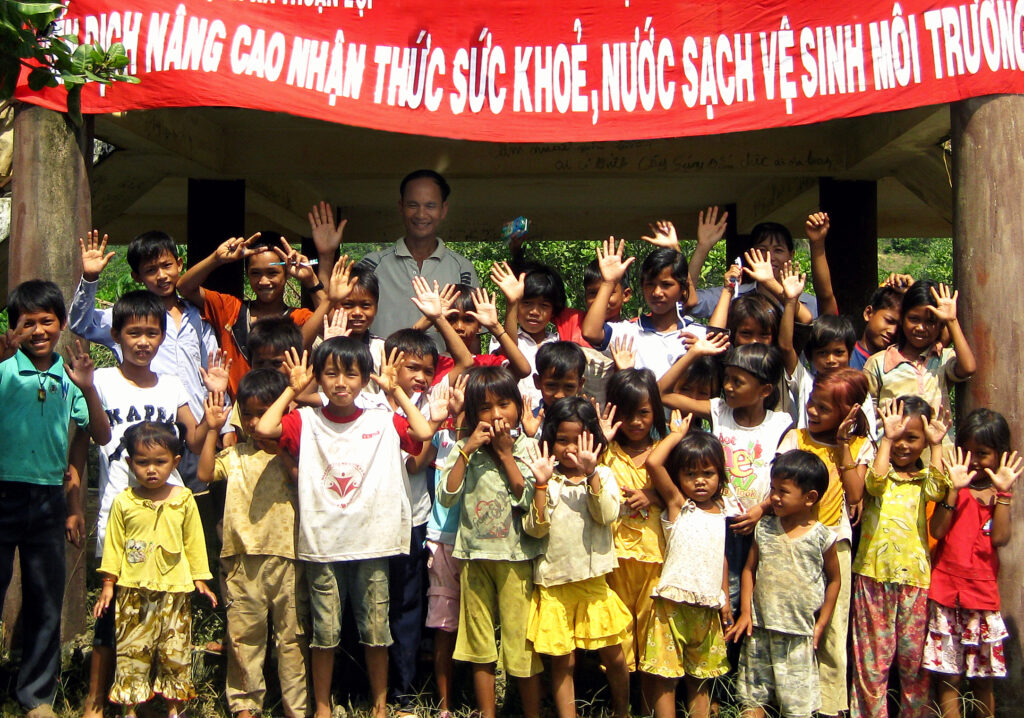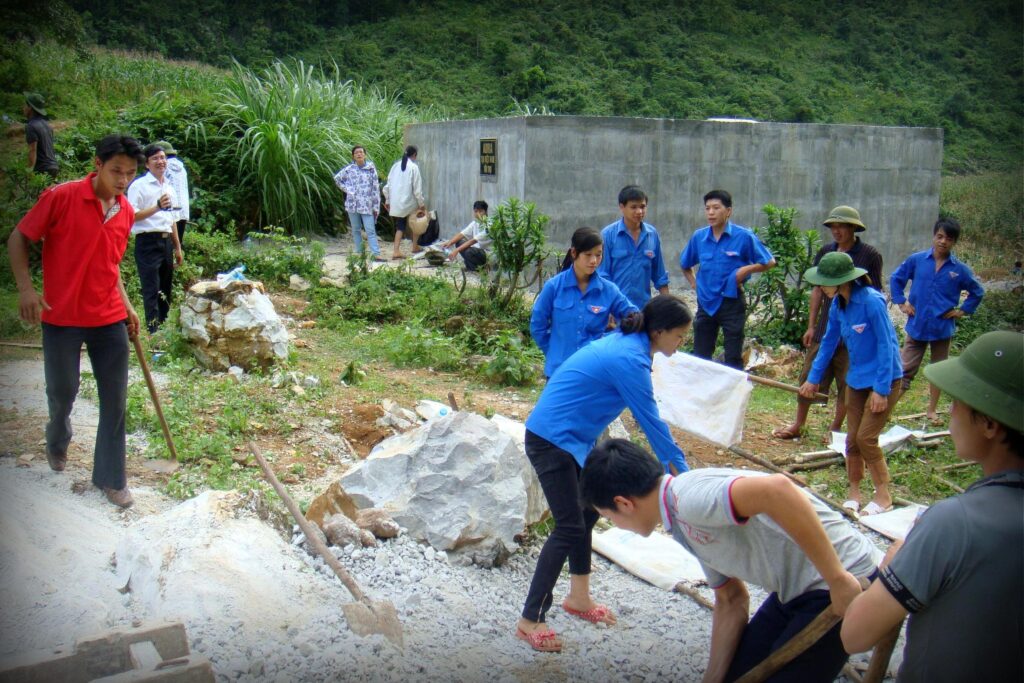The WASH project aims to improve access to safe water for the local communities of Cao Bang province. The project also educates these communities about practical and useful knowledge of personal, household and community hygiene and sanitation.
Duration: 02 years (01 July 2011 – 30 June 2013 )
Donor(s): ADRA Australia
Location: Cao Bang Province ( Ha Quang districts)
Sector: Water and Sanitation
Beneficiaries: At least 93 households (approximately 400 people)
Main partners: District/commune People’s Committee, Women’s Union, Youth’s Union
Project Goal:
To enable marginalized ethnic minority people in Cao Bang Province to improve their health
Expected Outcomes:
- To enhance local communities’ knowledge and practice in personal, household and community sanitation/hygiene
- To improve local communities’ access to safe water all year round
Note: The component of sanitation/hygiene comes first to express the chronological order of activity implementation
Main Activities:
- Training in sanitation/hygiene is provided to WASH boards, community leaders and members
At the beginning of the project, a WASH board will be established at each of the five project villages to help facilitate all project activities with the support of the local authorities and the project team.
In year 1, a survey will be conducted to assess (1) the current status of sanitation/hygiene knowledge and practice of local villagers and (2) areas of greatest needs for interventions (training, awareness raising activities and construction/repair of sanitation utilities).
Based on the outcomes of this survey, training contents and materials will be developed, and two one-day training workshops will be conducted each year at each of the five villages for at least 20 participants, including WASH boards, community leaders and members.
- Awareness raising activities on sanitation/hygiene are conducted by community leaders and members
Based on the outcomes of the survey of Output 1.1, the key messages and IEC materials will be developed for the organization of two half-day awareness raising activities each year at each of the five villages on relevant topics.
The WASH boards and the project will encourage the involvement of all members of the communities, especially the marginalized groups, and the support of at least one governmental or civil society agency (especially the Women’s Union or the Youth’s Union) in each activity.
Follow-up activities, if needed, will be determined and conducted by the WASH boards and community members to pursue any relevant topics or issues discovered or addressed through the awareness raising activities.
- Sanitation utilities (latrines, hand basins, etc.) are constructed or repaired in the communities
Discussions among community members will be facilitated by the WASH boards to identify and select beneficiaries for the project’s support in construction/repair of sanitation utilities, including latrines, hand basins, etc. While contractors might be needed, it is the project’s intention to train the WASH board members to provide them with sufficient skills to support the selected households in the construction and repair of the utilities. An estimated number of 50 sanitation utilities will be constructed or repaired in the five villages.
The WASH boards and the beneficiaries’ households will be responsible for the proper use and maintenance of all newly constructed or repaired utilities, under the monitoring of the project team.
- Local capacity in water system management is improved through training for WASH boards, community leaders and members
Based on the current status of local water resource and the water management system, contents and materials for training on water management will be developed for one two-day training a year at each of the two communes for at least ten participants, including WASH boards, community leaders and members.
Follow-up activities, if needed, will be determined and conducted by the WASH boards and local authorities and communities to pursue any relevant topics or issues discovered or addressed through the training.
- Rain water catchment tanks are constructed at strategic locations to provide water for the communities
A comprehensive survey will take place and serve as the basis for the selection of locations and the designs of the water tanks to be constructed.
One water catchment tank of 50-100 cubic meters, depending on the level of needs, will be constructed in each of the five villages with the support of the project and financial and/or in-kind contribution by local authorities and communities.
The local authorities, the WASH boards and the beneficiaries’ households will be responsible for the proper use and maintenance of these water tanks, under the monitoring of the project team.








